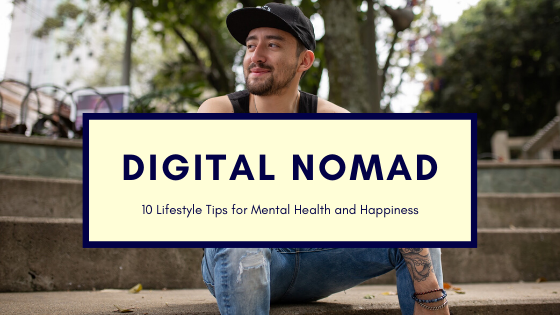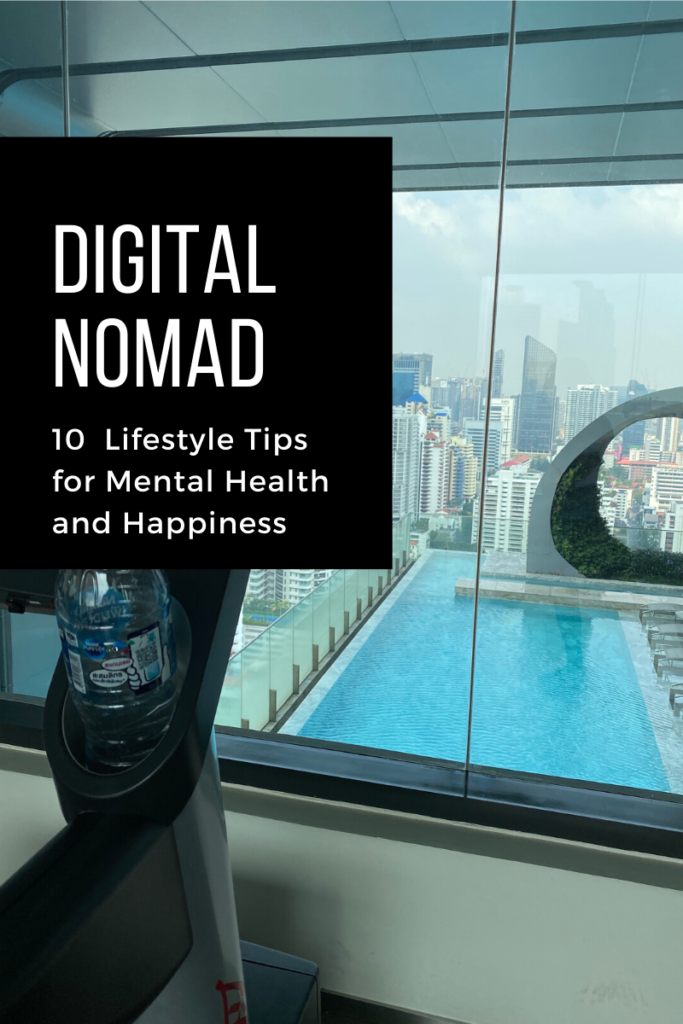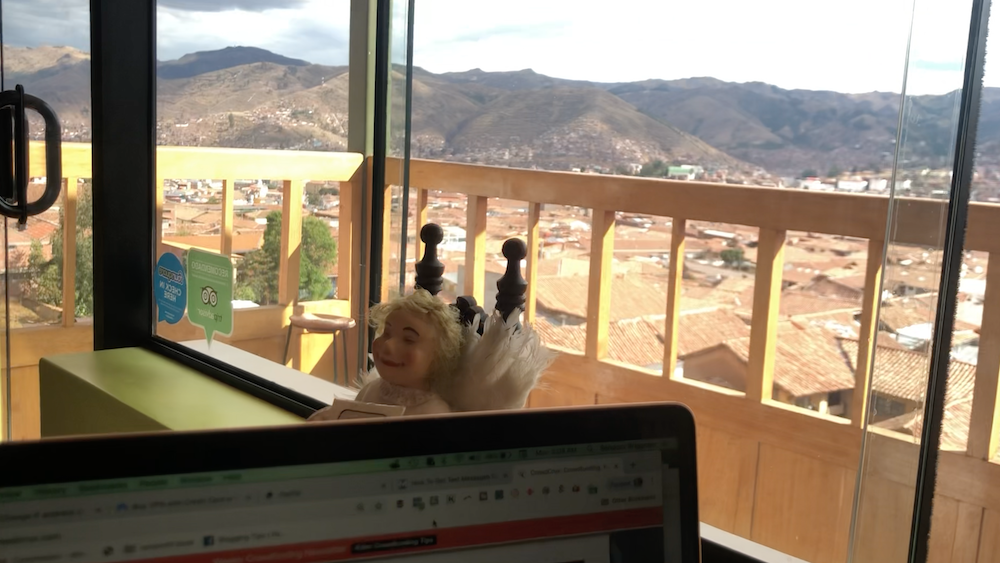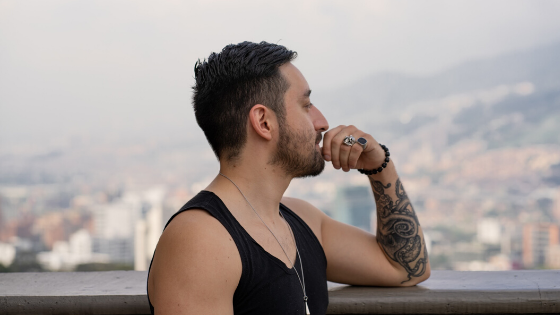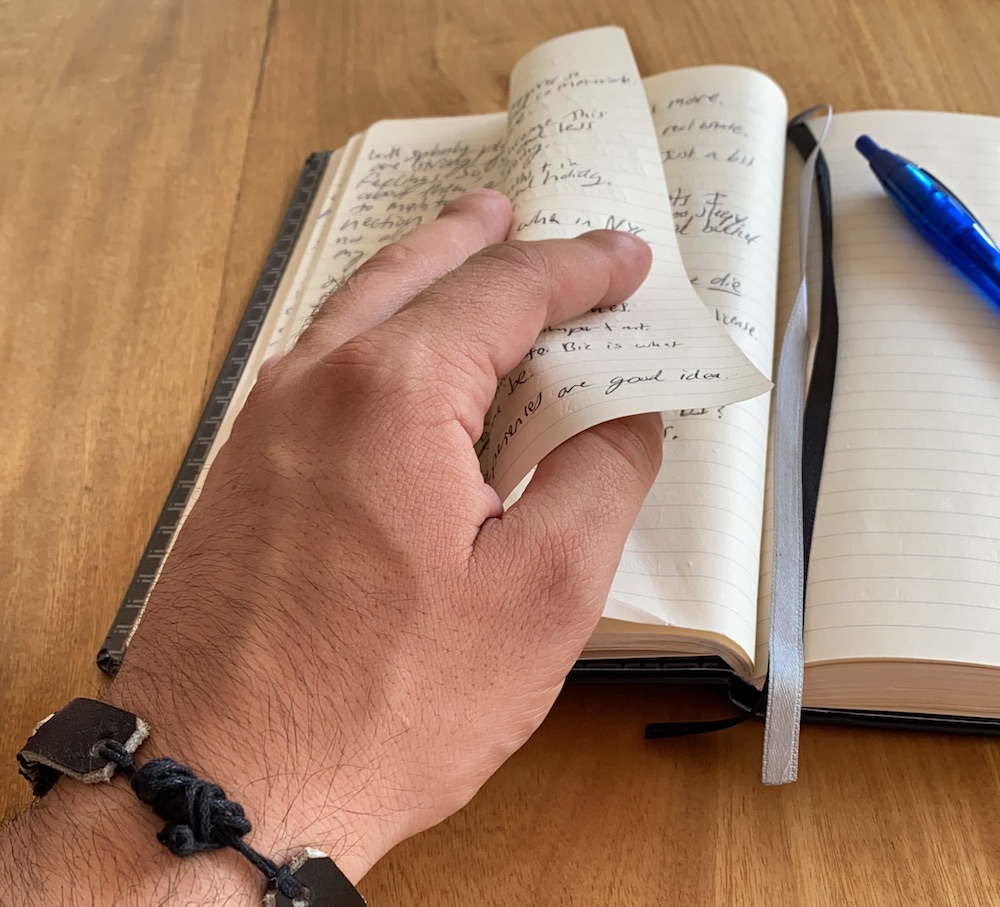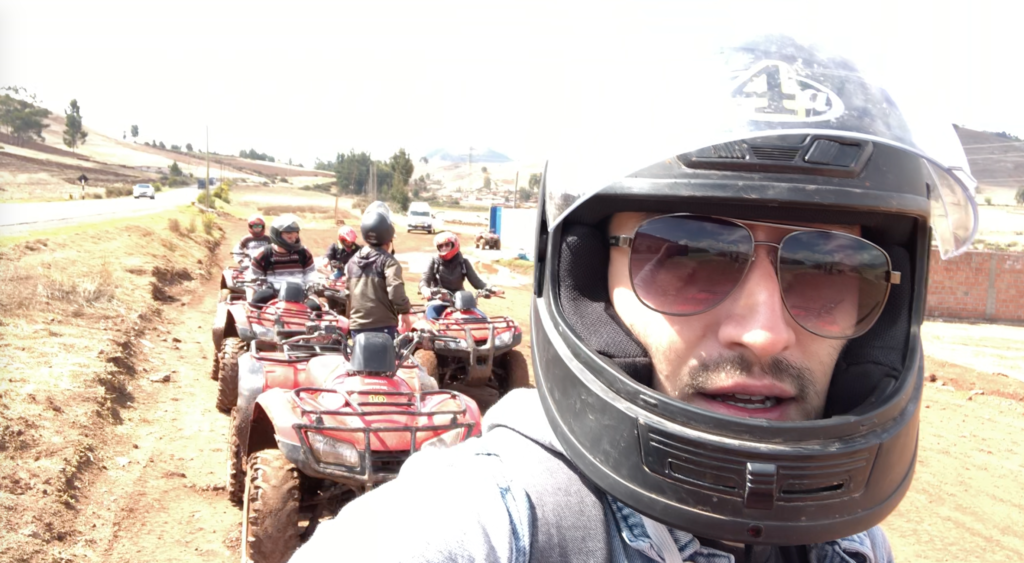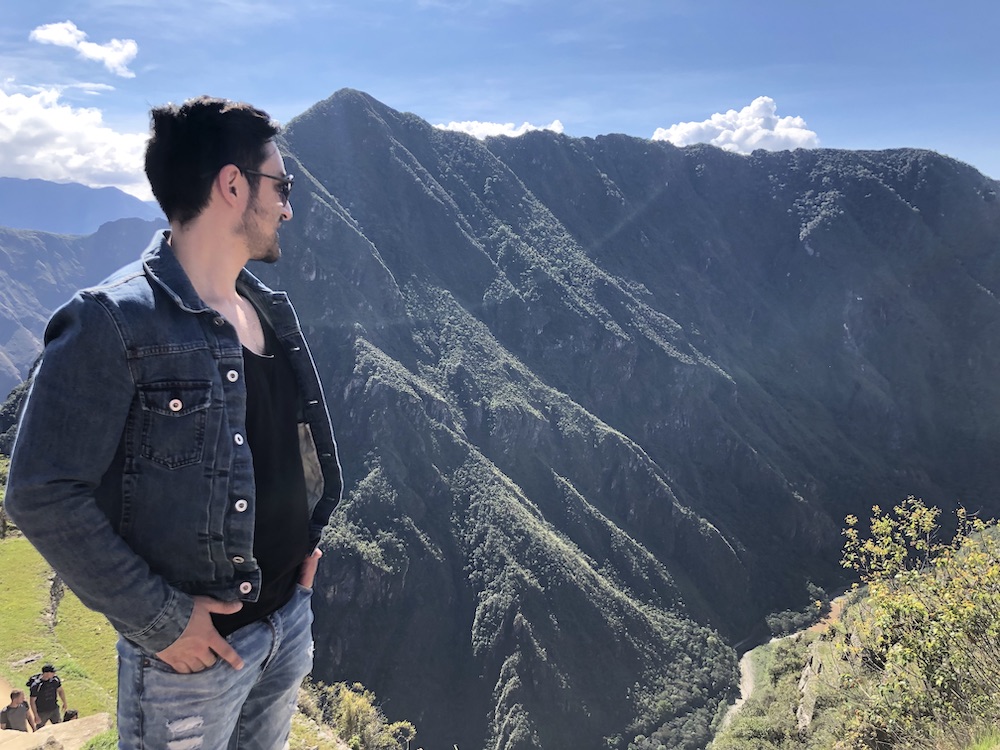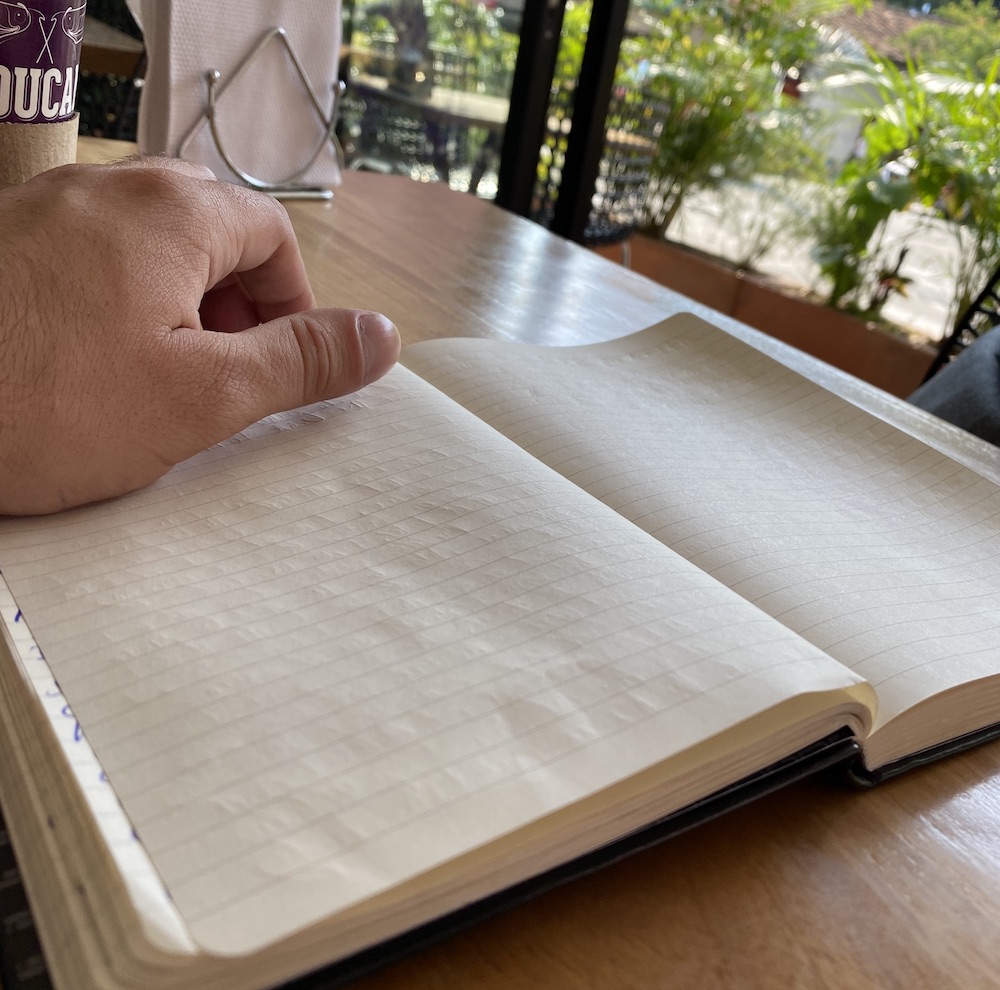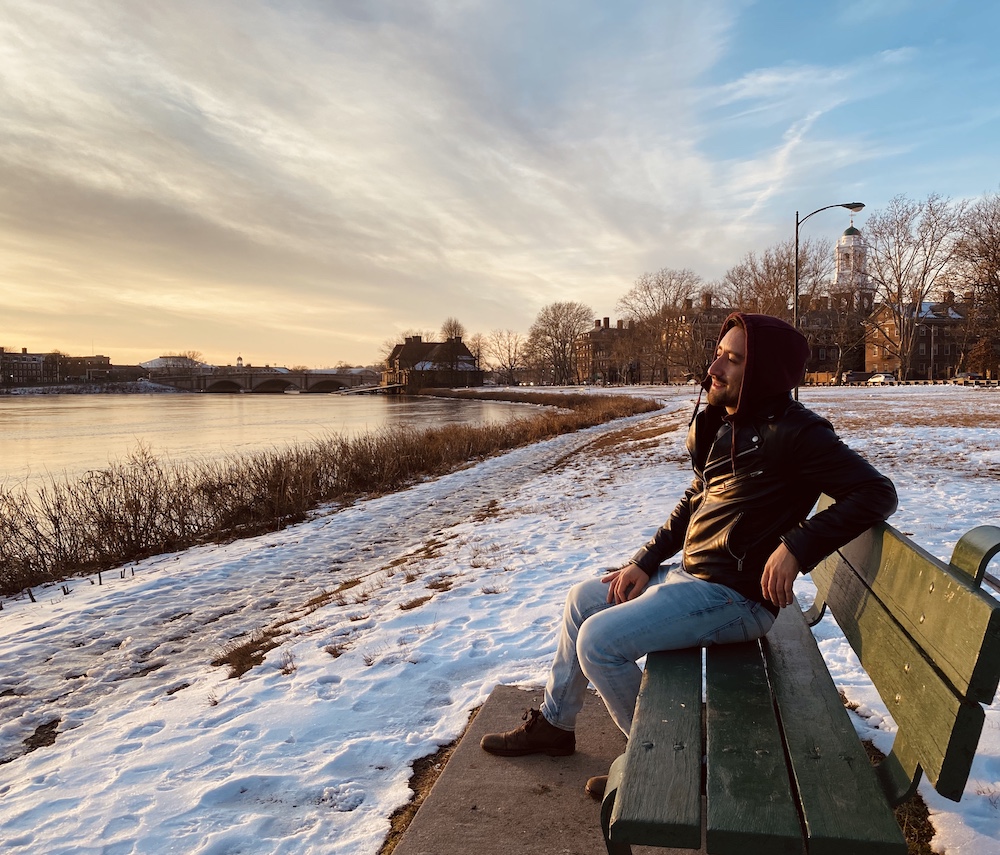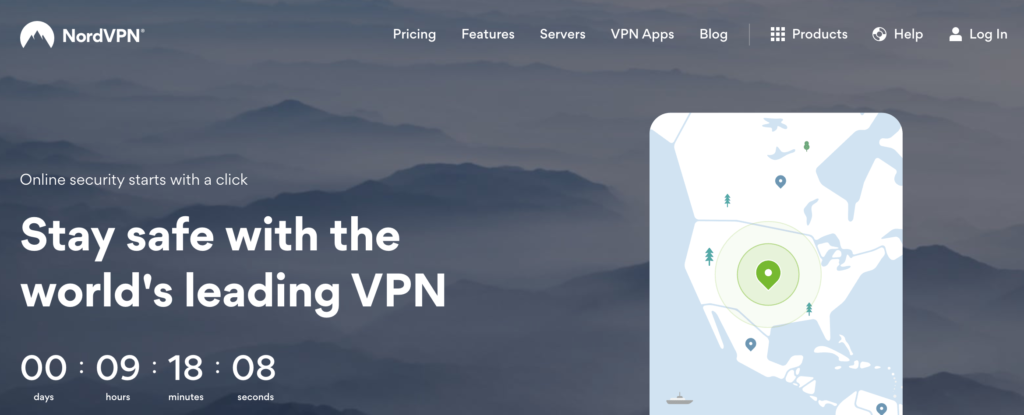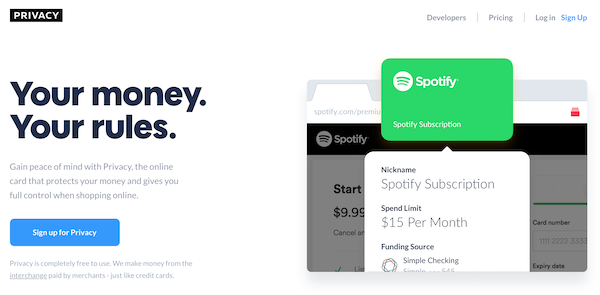When you’re traveling as a digital nomad, your lifestyle isn’t always at the top of your mind.
You’re too focused on earning money, discovering cool places around the world, and making friends.
However, if you aren’t aware of some of these lifestyle hacks, you might end up unhappy, frustrated, and confused as to why you feel this way. I went through a mini depression period through my own travels (which I shared candidly here).
If you wanna make sure that your travels are as smooth as possible, then I think you’ll like some of the advice that I’ll share today. These are practical ways to improve your lifestyle, take care of your mental health, and boost your happiness while traveling.
1. Create a Work-Life Balance
Haha – wow. I did a really bad job of this when I was traveling for the first time.
I couldn’t find a balance between my career and doing fun things while traveling. I have a very extreme personality, and I’m usually “all in” or “all out” when it comes to projects.
What ended up happening was… In the beginning of my travels, I was working every day, going to the gym, and maintaining my usual routine. Only, I wasn’t leaving enough time to explore or have adventures.
It left me feeling miserable, and like a great opportunity was passing me by. Why should I be in an air conditioned room, staring at a computer screen, when I could be out there doing cool sh*t!?!?
After I had this realization, I kind of flipped to the other side, where I was spending 80% of my time having fun, and only 20% on work. It got pretty bad, and I fell behind. I basically didn’t make any progress career-wise and in some ways, even went backwards a few steps.
Work life balance is crucial for your career, but it’s also important for your mental health and well-being. When I started to have more fun, I was certainly having a good time, but I could feel myself becoming less confident.
My confidence comes from completing projects, doing good work, kicking ass, and taking names. When I’m not doing those things, I feel like my life is stagnant. I don’t feel confident about my future.
It will be hard to have work-life balance when you’re traveling, so be aware of this.
Traveling is literally a part-time job. You have to figure out where you’ll be going, what you’ll be doing, what the visa requirements are, and a whole host of other things.
The more itinerary planning you can do ahead of time, the easier it will be to just enjoy.
2. Know What Makes You Happy
It doesn’t matter what age you are, you’re still getting to know yourself.
But, up until this point, you should have some idea of what makes you happy.
In a later point, I’ll recommend starting a travel journal. In your first few pages, you should take an assessment of your life and write out a few things that make you happy. You can reference this later when you feel down, and see if you’re continuing to participate in those things.
Some people enjoy waking up early and going on a 7 hour bus ride to see a natural phenomena, like a waterfall. Other people would rather spend that time relaxing on the beach. The only difference is your personality.
When you’re traveling alone and seeing other people do things, like go hiking or ATVing, there is a big temptation to feel the need to join along. Sometimes, this can be fun. Other times, it can be draining.
There’s no other way to say it. Know what makes you happy. This will save you a lot of headache down the road.
Whenever I violated this principle, I was miserable. For example, I prefer living in cities as opposed to rural areas. After a few days in a rural area, I start feeling antsy. I don’t like the slower pace of life. It starts to weigh on my mood.
I sold myself on the idea that being in Peru for a month, specifically Cusco and the surrounding areas, would be a good idea. I could go hiking, experience nature, and live in a quaint little town. Man, was that a bad choice.
It was only once I got back to a big city that I breathed a sigh of relief. It was like I was home again. My depression lifted and I was 10x happier.
Know what’s going to put a smile on your face.
3. Incorporate Meditation Into Your Routine
THIS IS A MUST!
If you have never meditated before or aren’t familiar with the concept of mindfulness, take a second to check out my book, Unlocking Human Potential.
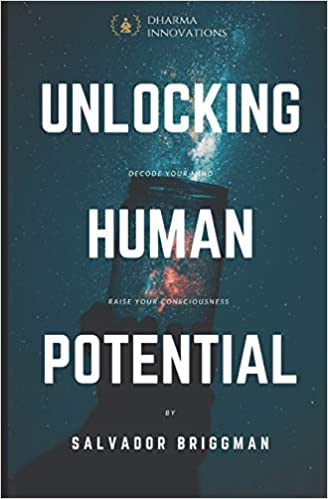 Meditation is important because it grounds you in the present moment. It eliminates your worries about the future or your negative thoughts about the past.
Meditation is important because it grounds you in the present moment. It eliminates your worries about the future or your negative thoughts about the past.
This simple exercise can help to dramatically alleviate your feelings of anxiety. It will allow you to connect with yourself in a deeper way that you have never thought possible. Even 15 minute a day will have a profound effect over time.
We all suffer from moment of brain fog, mental overwhelm, and being on autopilot. The easiest way to clear away these problems is through meditation. However, I’ll also share a few ways to do that here.
A simple meditation routine can take the form of a 20 minute session in the morning before you begin the day, or at night if you find that you can’t turn off your problem-solving brain.
If you need help and guidance, you can always reach out to me for some extra educational content. I love seeing new people embracing this centuries-old exercise to calm their emotions and promote well-being.
4. Journal and Catalogue Your Travels
I am so happy that I kept a travel journal. This is an invaluable resource. You can use it to do a few things:
- Remember experiences, thoughts, and good times throughout your journey
- Capture and track your emotions over the span of time
- Identify and fix negative patterns of thoughts, behaviors, or emotions
You don’t need anything fancy. I have a black leather journal that I picked up on Amazon. There are some beautiful ones there that you can look into.
Make sure that you start the first few weeks with the habit of regularly writing in your journal. I would do it every 2-3 days, even if it was just for ten minutes at a time.
There’s a strong temptation to avoid writing in your journal, or rationalize that you’ll remember everything on your travels. Don’t give in! This journal is such a valuable resource for me. Not only did it crystalize my travels, but I can look back and see exactly how I felt in different regions of the world.
I can go back into a memory and see exactly what I was thinking when something happened. It’s an oddly intimate way of getting to know yourself.
5. Create a Friendship Maintenance Plan
I knew ahead of time that I was going to have trouble maintaining my existing friendships. I’m just not very good at that sort of thing.
I picked the handful that mattered most to me and made sure to message them when I could. Only, sometimes I slipped up… and they let me know.
When you change the physical location that you’re in, it makes it ten times harder to maintain relationships in your old location. You can’t make new memories. You can only go into maintenance mode, reminisce about old events, and keep people as updated as you can.
Unfortunately, this is just part of travel. You have to leave parts of you behind in order to experience the world. You’re never going to be able to fill everyone in on everything you’ve experienced, so pick a few friends you want to stay close with, and make sure to stay in touch.
Failure to do this can create feelings of loneliness. It can really harm your sense of wellbeing. I’d recommend doing a video chat at least every 2 months to try to keep up with existing relationships that you have.
Sometimes, having a friend see your face is all they (and you) need to re-connect. It can be as simple as that.
6. Put a Date on Travels Back Home
You might not have a family that demands time and attention, but I sure do.
If you plan to be traveling around the world, make sure that you’re clear about when you’re going to come home to see the family. Maybe this is during Thanksgiving and Christmas. It will depend on your family.
Having some pre-defined dates that I planned to be home made it a lot easier to relax family members who were concerned that I might be traveling for too long, or who were worried about my whereabouts. You might not care, but I’m an only child, so there is a lot more attention on me in my family.
There were times that I was out of contact for a couple weeks just because of the location I was in and my availability. If nothing else, send some emails. People want to hear from you. You could always use Whatsapp or a similar application to stay connected.
I’m not very good at communication all the time, so having those pre-defined dates on the calendar was a good solution for me. My family was less worried about the next time that they would have the chance to see me.
7. Learn Which Environments Suit Your Personality
You might already have a clear sense about this, but I didn’t. Looking back, I wish I had changed up my living arrangements for certain cities.
For example, rather than staying in an Airbnb in Cusco, Peru, I wish I had stayed in a hostel. This would have made socializing a lot easier and I would have been less lonely.
In other areas, like Cambodia, I didn’t get much value out of staying in a hostel. I would have been just fine living in an Airbnb, because the nightlife was bountiful enough for me to socialize a bit on my own. I also wasn’t staying there for very long.
As I stated before, I tend to like city environments more than the country. I do enjoy being in the country, but not for much more than a week. Then, I need to return to civilization. I was also traveling alone.
My most recent trip made me realize that sometimes, it is fun to travel with other people. There are certain environments where I would do that. Other countries, I’d rather explore on my own. You only learn that through trial and error.
8. Consider Travel Insurance
In order to minimize headaches, you could consider looking into getting travel insurance to cover major medical emergencies throughout your journey.
I talk a bit about this, along with tax and legal issues you might encounter, in my course called “How to Be a Digital Nomad – Achieve Location Independence.”
Travel insurance has its upsides. If you’re only going to be visiting somewhere for a short time, you can probably simply use the insurance that you buy when you book your airline ticket. If you’re spending a longer time, then you may want to look into an alternative solution like the ones I mention here.
9. Use a VPN!
If you’ve never use a VPN before, it’s basically a magical piece of software that you can install on your computer in seconds. You can use it to access the internet from ANYWHERE in the world.
That means, if you’re accessing the internet from your laptop in Vietnam, you could fool the internet to think that you’re accessing it from New York.
Why would you want to do that?
Because a lot of online services are tied to your home country, like Netflix, for example. Also, you’ll get lots of weird search results and YouTube results sometimes in a foreign country.
Lastly, if you’re accessing an application that you use frequently, that application may lock you out if they sense you’re coming from a different location than normal. This can lead to massive headaches, especially if you can’t authenticate using your cell phone. Check out the tool below:
I recommend looking into NordVPN, which is basically the gold standard of VPNs. They do a really good job of keeping their software robust, and they give you a lot of options from where you can access the internet.
10. Plan for Credit Card & Phone Issues
I actually didn’t expect this to be an issue. I had contacted my bank before leaving for a long 7 month travel binge.
But, it turned out to be a big issue, particularly when I was traveling in Latin America.
There were points in time where I couldn’t call my bank, because it was the weekend, and my debit (and credit) card weren’t working. I didn’t know what to do. I wish I had done something like buy pre-paid gift cards, or buy Airbnb credit.
That’s until I discovered Privacy.com, which is a great app that lets you create debit card numbers on the fly. You can basically make single-use cards. Any time my card wasn’t working, I would just create a virtual privacy card and then it would work fine. The website basically works as an intermediary.
I’d look into some of these really killer tools for when you’re traveling. They will help you protect your privacy online, and keep you anonymous.
Another good idea would be to buy a burner phone that you can put your old sim card into. This way, if you need to get text messages, you can have them sent to your burner phone.
Otherwise, what will end up happening is you’ll try to log into key applications (like paypal), only to find that you’ve been locked out and need to verify with your phone. Only… you can’t use your phone and you have a new sim card.
I wanted to pull my hair out.
I hope some of these tips are helpful for you, and if you really want my best content, go and check out my new course, “How to Be a Digital Nomad – Achieve Location Independence.”
